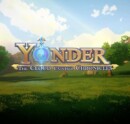
Developer: Prideful Sloth
Publisher: Prideful Sloth
Platform: PC, PS4, Switch
Tested on: Switch
Yonder: The Cloud Catcher Chronicles (Switch) – Review
As with lots of triple A titles, when a game is released, other games will try to ride off of its success. Clone games have always been part of our industry, but where is the line drawn of what would be considered a clone or not? Are Call of Duty and Battlefield clones of each other, and which one is the clone? What about Dota, League of Legends, Heroes of the Storm, or Smite, surely they have to be clones right? Should games that have been inspired by others be counted or not, and why?
Story
Traveling to an unknown island on a pirates’ ship, you get hit by lightning and swept away and find yourself in a mystical place where you’re addressed by a looming dark figure. They tell you about the magical compass you have (that also serves as your quest guide) and throw you off, into the world you’ll be playing in. Waking up in a cave overlooking your crashed vessel, and no survivors, you’re now all on your own. Not for long however, because as you continue to explore the cave you find a little fairy creature that will follow the player and help you out. As you’ll learn later, most of the story and gameplay is exploration and collecting, which makes the story development a really natural experience as with most open world games.
Graphics
Yonder is quite easy on the eyes. The comic book-like appearance is great fun, and it makes in particular the fairies you encounter a lot of fun to look at. It also gives the game some opportunities to make weird and interesting environments, like large overhanging rocks, or weird looking buildings. The game being partly based on games like Breath of the Wild, with the art direction and the more constrained maps, it gives the genre quite a breath of fresh life (pun intended). The problem with this is that, especially in the beginning of the game, the maps in Yonder feel a lot smaller than maps in other games. You’ll get a similar pull out shot as you’ll get when you got out of the tutorial in Zelda. However, whereas that castle is genuinely far away, it takes way less time to get to the first village in Yonder making the maps feel a lot smaller.
Sound
When playing, the limited amount of background music makes the game feel a little empty, and somewhat haunted. And no, we don’t mean that in the ‘Ben drowned’ kind of way, but because there is so surprisingly little sound coming from your speakers. There is also little to no voice over, instead, NPCs will just make grunts of confusion or surprise when engaged in conversation, and very little else. The most interesting sounds that you’ll hear are from the random nonhuman animals that roam the wild, some of which you can domesticate, capture or otherwise befriend throughout your playthrough, like the oxen, and fox-like creatures you’ll find in your playthrough.
Gameplay
Yonder is primarily a 3D collectathon, with some minor aspirations in base building, crafting, and exploration. Throughout playing the game, you’ll come to collect the sprites that are littered around the world. Unlike one of the games it draws a lot from however, there is no combat, which makes it a lot more of a relaxed experience. This also removes quite a bit of the challenge from the game though, which could turn off a gamer looking for something to keep their attention a little more.
The main content and the story of the game are driven by quests, but because of the lack of combat, most of the quests are gathering supplies, or clearing out the ever present ‘murk’. This murk is a wall of purple mist that makes the player gather a certain amount of the game’s sprites in order to clear it, serving as some sort of gated content. This is really unfortunate for the title, because of the already monotonous gameplay, gating chunks of the content can work as a carrot on a stick in some cases, but here it mainly serves to taunt the player with the things you cannot do yet while you work through the boring stuff first.
Conclusion
Yonder: The Cloud Catcher Chronicles, is clearly based on some major titles from mainly Nintendo’s history, Breath of the Wild, Harvest Moon and Skyrim of all things. The game absolutely isn’t a clone of these games however, but instead they took parts of what made these games great, and threw them together in such a way that they made this extremely casual game. Most of the gameplay doesn’t matter, and the incentive is an unfortunate carrot on a stick situation. So while not a clone of any one game, this game is a great example of how cutting mechanics from one game without the supporting gameplay and pasting it in another title does not always work as intended.
Yonder: The Cloud Catcher Chronicles (Switch) - Review,
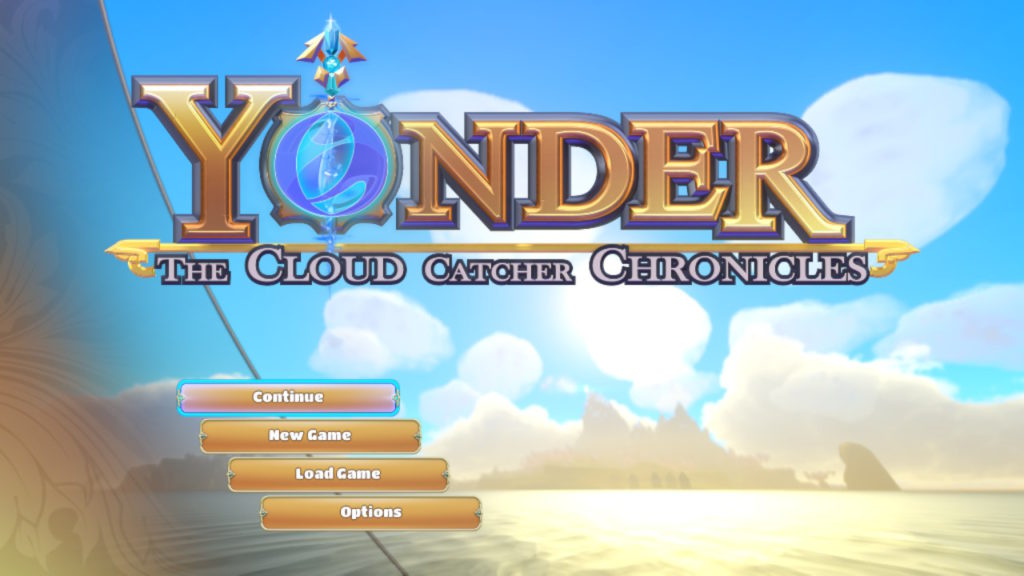
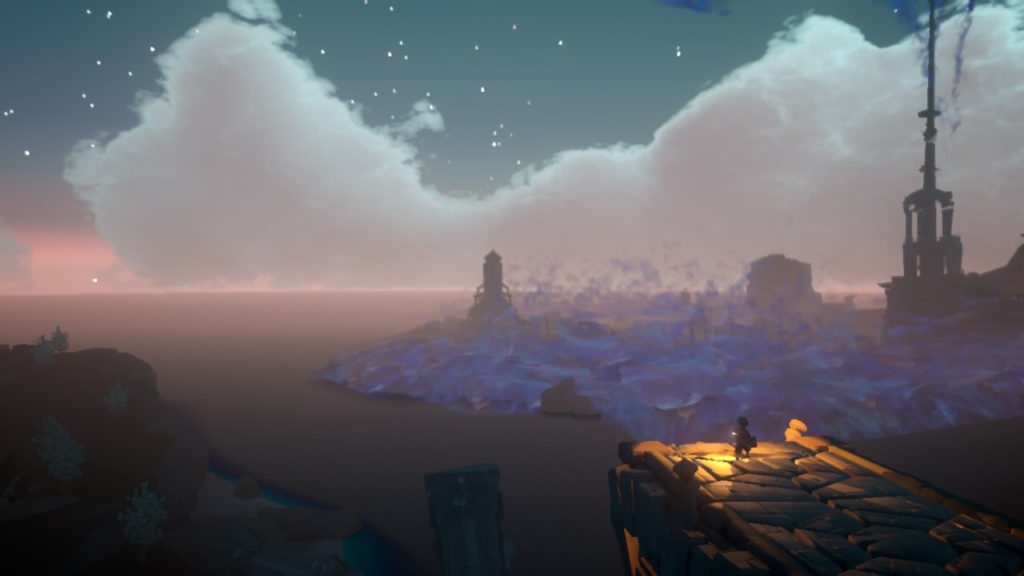
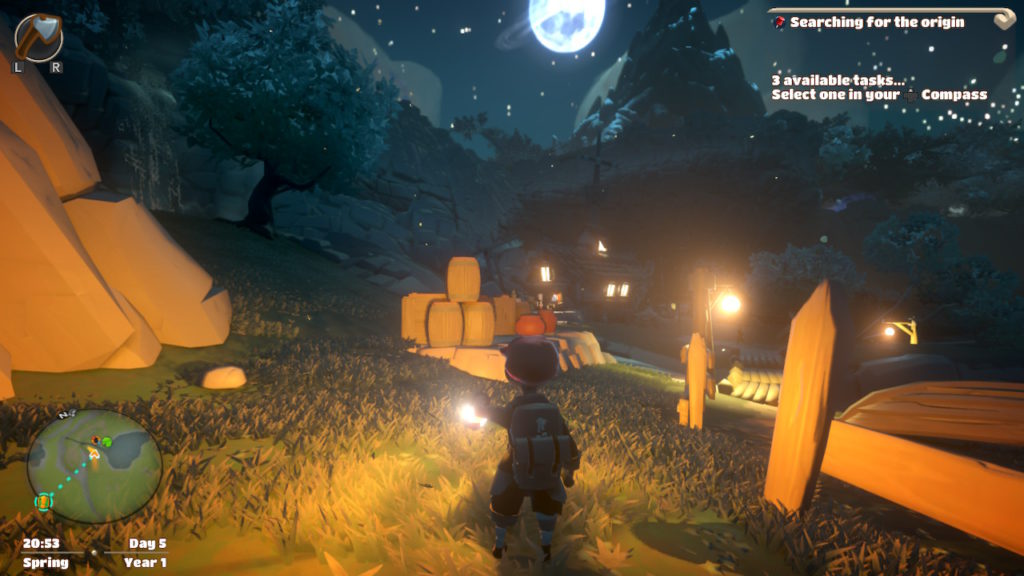
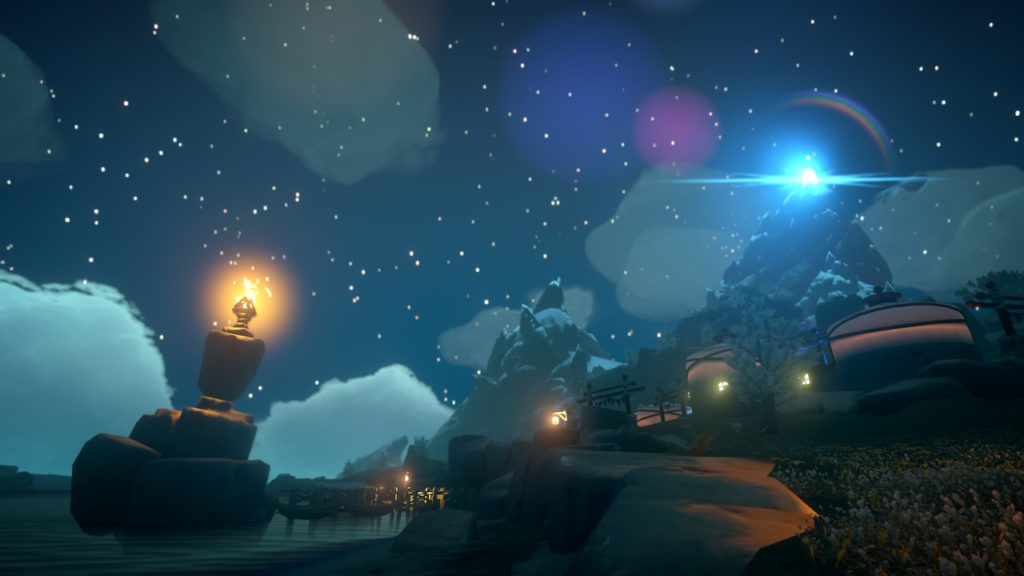
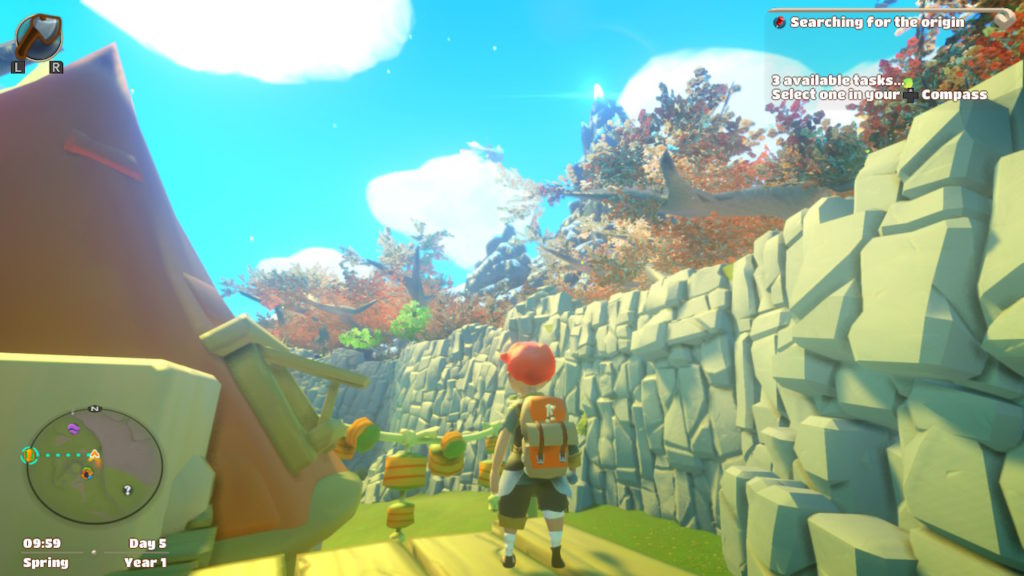
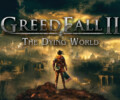


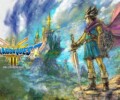
No Comments